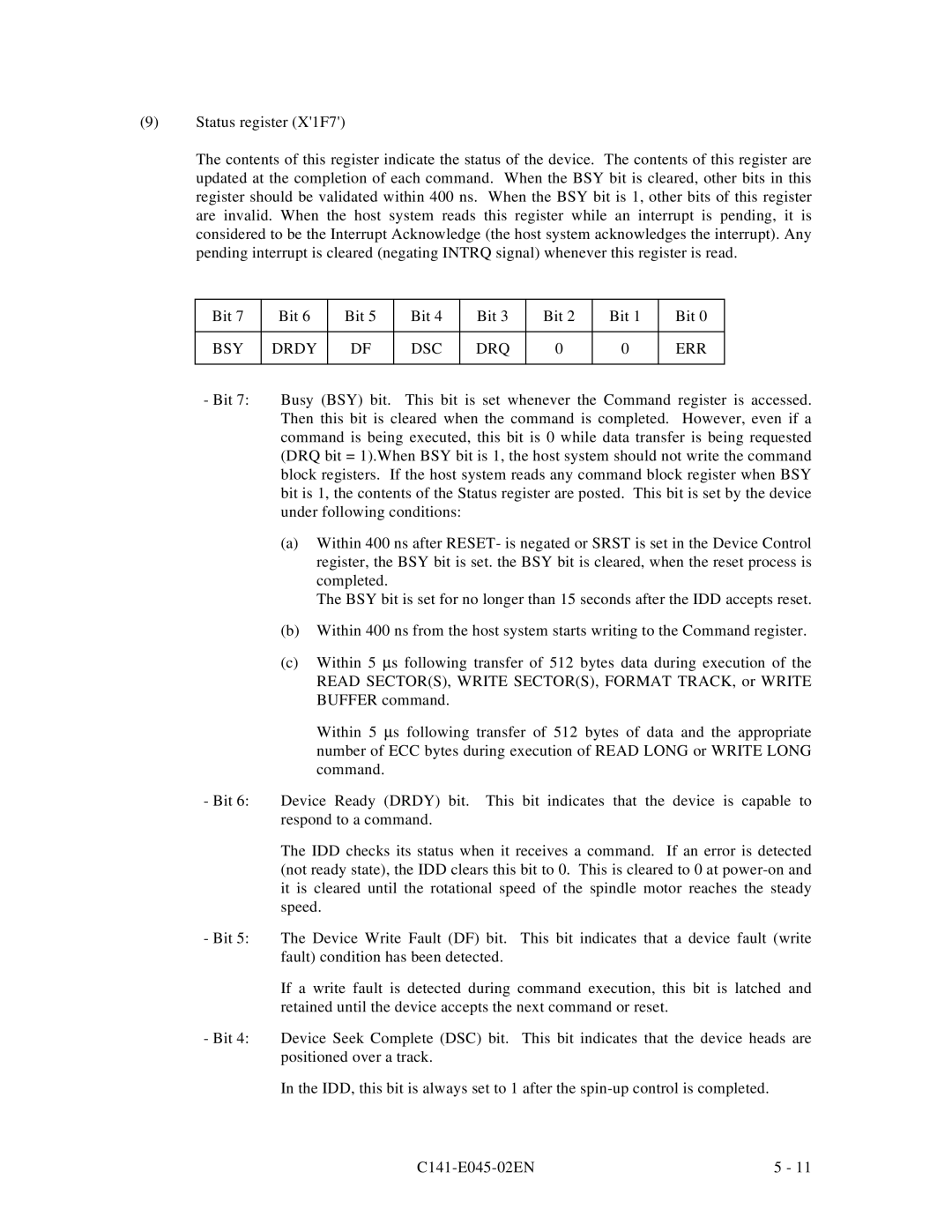(9)Status register (X'1F7')
The contents of this register indicate the status of the device. The contents of this register are updated at the completion of each command. When the BSY bit is cleared, other bits in this register should be validated within 400 ns. When the BSY bit is 1, other bits of this register are invalid. When the host system reads this register while an interrupt is pending, it is considered to be the Interrupt Acknowledge (the host system acknowledges the interrupt). Any pending interrupt is cleared (negating INTRQ signal) whenever this register is read.
Bit 7 | Bit 6 | Bit 5 | Bit 4 | Bit 3 | Bit | 2 | Bit | 1 | Bit 0 |
|
|
|
|
|
|
|
|
|
|
BSY | DRDY | DF | DSC | DRQ | 0 |
| 0 |
| ERR |
|
|
|
|
|
|
|
|
|
|
-Bit 7: Busy (BSY) bit. This bit is set whenever the Command register is accessed. Then this bit is cleared when the command is completed. However, even if a command is being executed, this bit is 0 while data transfer is being requested (DRQ bit = 1).When BSY bit is 1, the host system should not write the command block registers. If the host system reads any command block register when BSY bit is 1, the contents of the Status register are posted. This bit is set by the device under following conditions:
(a)Within 400 ns after RESET- is negated or SRST is set in the Device Control register, the BSY bit is set. the BSY bit is cleared, when the reset process is completed.
The BSY bit is set for no longer than 15 seconds after the IDD accepts reset.
(b)Within 400 ns from the host system starts writing to the Command register.
(c)Within 5 μs following transfer of 512 bytes data during execution of the READ SECTOR(S), WRITE SECTOR(S), FORMAT TRACK, or WRITE BUFFER command.
Within 5 μs following transfer of 512 bytes of data and the appropriate number of ECC bytes during execution of READ LONG or WRITE LONG command.
-Bit 6: Device Ready (DRDY) bit. This bit indicates that the device is capable to respond to a command.
The IDD checks its status when it receives a command. If an error is detected (not ready state), the IDD clears this bit to 0. This is cleared to 0 at
-Bit 5: The Device Write Fault (DF) bit. This bit indicates that a device fault (write fault) condition has been detected.
If a write fault is detected during command execution, this bit is latched and retained until the device accepts the next command or reset.
-Bit 4: Device Seek Complete (DSC) bit. This bit indicates that the device heads are positioned over a track.
In the IDD, this bit is always set to 1 after the
5 - 11 |
